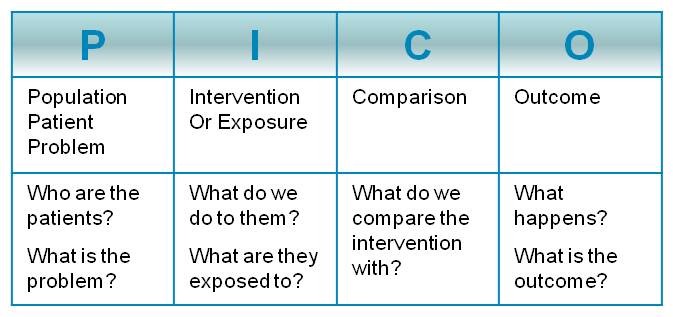Background Literature
When getting started with your research, it is a good idea to get an overview of the context of a topic and gather background information. This can help you determine if the topic is in line with your ideas; it will also expose the root of any problem with reference to the existing literature and provide opportunity to identify gaps. Background information may include facts, historical figures, timelines, definitions, origins, theories, events, and more. The key is to summarise what is known about a topic of research before you begin with your own contribution to the research.
Where to Search
Conducting a thorough search of the Library Databases A-Z to identify relevant studies is a key factor in minimizing bias. It is best to search multiple databases when looking for research as you will often find unique articles depending on the platform or content; in some cases cross indexing will also occur. Here are some suggestions to search when looking for literature :
Search Strategy
A good literature review requires a comprehensive literature search, identifying all relevant research articles that best addresses your research question. It is important to structure your literature search systematically; clearly identify the scope before you begin and keep in mind the quality and relevance of the literature as you proceed.
PICO
Begin your search strategy by using the PICO framework below:

Structuring your question will clarify the search and identify keywords or search terms that will assist with your search.When conducting a search within a large database your search terms should be closely related to the components of your PICO question. For more information see the Tutorial on the right.
Example
You want to conduct a literature review that asks the question:
For an adult with lower back pain, is exercise or resting a more effective treatment?
P - Adult with lower back pain
I - Exercise
C - Rest
O - Relief of lower back pain
Using Synonyms
When conducting a systematic search for a literature review it is best to find all the synonyms you can on your keywords, such as lower back pain, lower backache
Join the synonyms together using OR eg. lower back pain OR lower backache
Joining Concepts Together for the Database Searching
Use AND to join the main concepts together
lower back pain OR lower backache
AND
exercise OR physical activity
Filters
Using the Limits or Filters within the databases helps define the scope of the literature review - for example is the focus on children or all recent literature that has been published in the last 5 years.
For the above example a limit to "All Adults" can be used.
Build a Search using MeSH
MeSH is the National Library of Medicine's controlled vocabulary thesaurus. Headings within the thesaurus are arranged in a hierarchical structure known as a "tree" that enables searches to be conducted at various levels of specificity. MeSH thesaurus can help find words used by indexers for medical concepts. This thesaurus works in the background of Medline by linking synonym.
EBSCO Medline Search Example
Covers research in medicine, nursing, allied health and public health.
Access journal articles on nursing and allied health research. Terms of Use
Provides access to Cochrane Systematic Reviews, Clinical Trials and other reviews.
Access journal articles on nursing and allied health research. Terms of Use
Provides access to journal articles on health management and administration. Terms of Use
Access journal articles from the largest biomedical and health research database in the world via the EBSCO platform. Terms of Use
Access journal articles from the largest biomedical and health research database in the world via the Ovid platform. Terms of Use
An Australian occupational therapy database that contains abstracts of systematic reviews, randomised controlled trials and other resources.
Access journal articles from the largest biomedical and health research database in the world.
An Australian Physiotherapy database that contains randomised trials, systematic reviews and clinical practice guidelines. Terms of Use
Provides access to journal articles from psychology and behavioral science journals. Terms of Use
Provides access to journal articles from psychology and behavioral science journals. Terms of Use
Access multi-discipline journal articles and book chapters. Terms of Use
Access journal articles on sociology, criminology, substance abuse, social psychology and related areas. Terms of Use
A free Australian search engine to help clinicians identify the best available evidence.